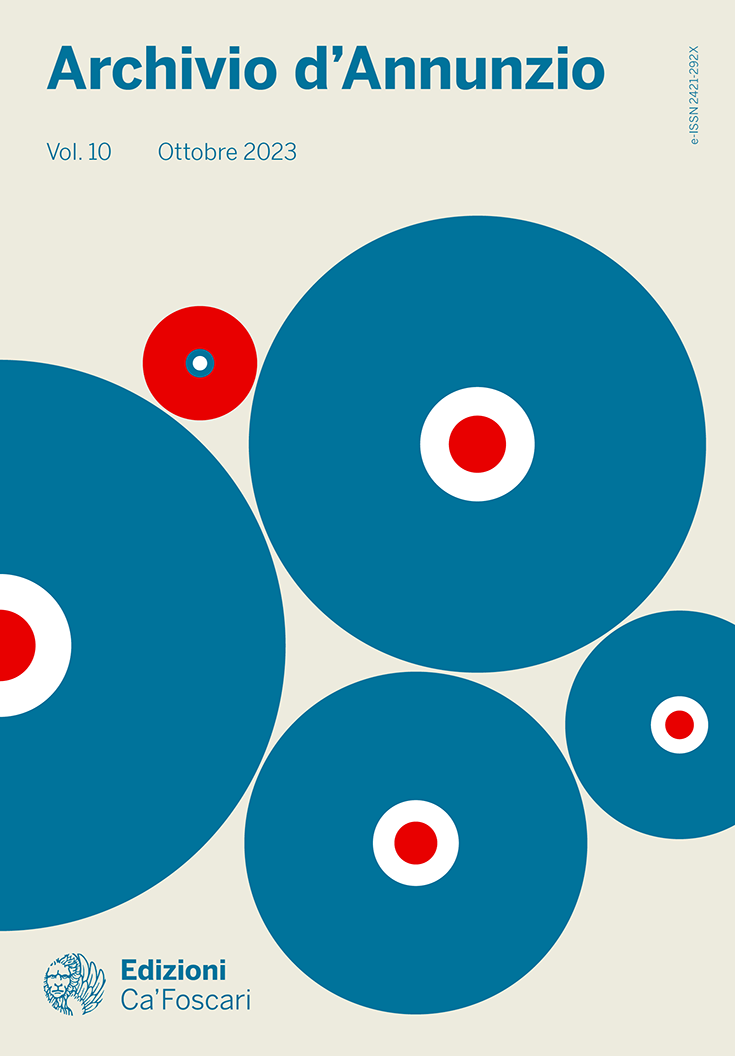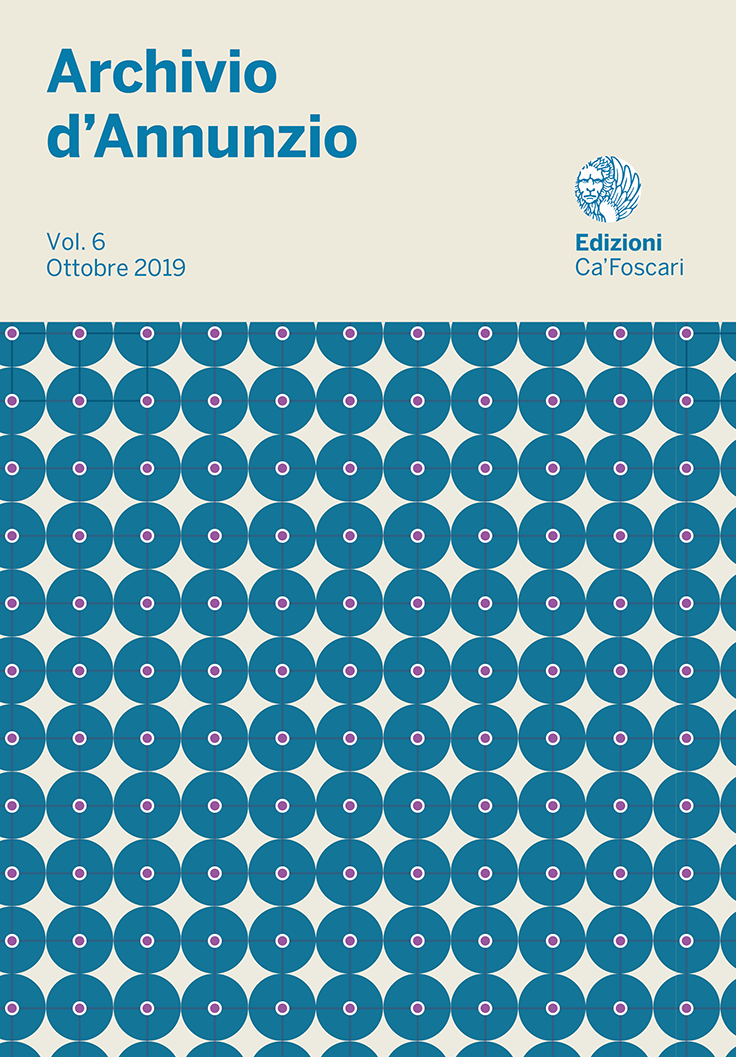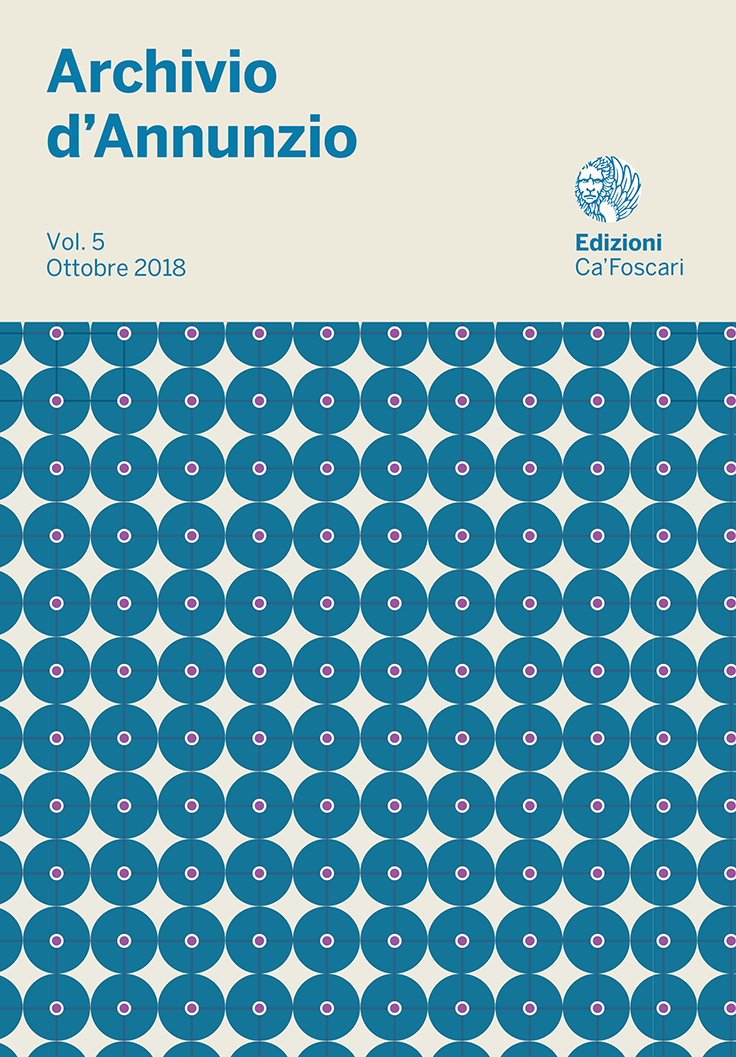Archivio d’Annunzio
Rivista di Studi comparati
lock_openopen access checkpeer reviewed topic: culture dell’eurasia e delle americhe letterature
Presentazione
Rivista che si pone in modo del tutto originale rispetto ad altre testate e supplementi dedicati all'Immaginifico e che considera la figura di Gabriele d’Annunzio come il campione eponimo di una visione interdisciplinare e multiculturale, anticipata dal sottotitolo stesso Rivista di Studi comparati. La personalità del poeta che vive a cavallo tra naturalismo e decadentismo, risentendo della crisi dei movimenti fin de siècle, contrassegna i campi della letteratura, delle arti, della musica, del cinema, dell'azione politica, della storia del costume e del gusto e si esprime in prosa come in poesia, attraverso il teatro e la prosa di ricerca. La prima sezione «Officina dannunziana» presenta questa figura con le sue luci e le sue ombre, la seconda sezione «Civiltà dannunziana» si dedica ad altri personaggi che nelle varie forme artistiche hanno proseguito la loro opera sulla scia del poeta, creando una comparazione umanistica che copre un arco di tempo ampio e significativo per la cultura.













